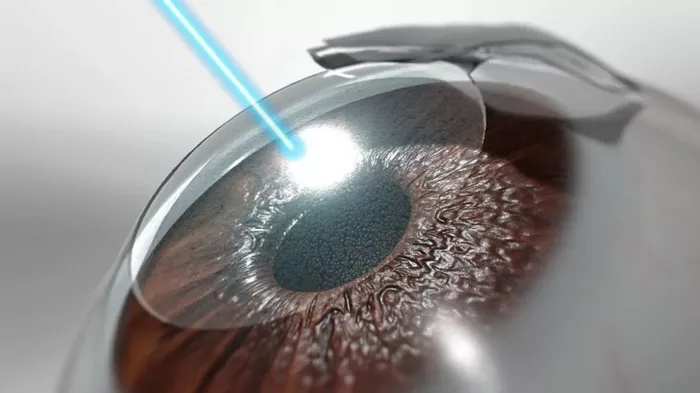Cataract surgery is a common and highly effective procedure to restore vision affected by cataracts. One critical aspect of the surgery is the dilation of the pupil, which allows the surgeon better access to the eye’s internal structures. This article explores how long the eye remains dilated after cataract surgery and the factors influencing this duration.
Understanding Cataract Surgery
What is Cataract Surgery?
Cataract surgery involves the removal of the eye’s natural lens, which has become clouded, and replacing it with an artificial intraocular lens (IOL). This surgery helps restore clear vision, enabling patients to return to their daily activities without visual impairment.
Why is Pupil Dilation Necessary?
During cataract surgery, the pupil needs to be dilated to provide the surgeon with a clear view of the lens and the posterior chamber. Dilation helps in the safe removal of the cloudy lens and the precise placement of the IOL. Pupil dilation is achieved using mydriatic eye drops.
The Dilation Process
Types of Dilation Drops
The dilation process involves using mydriatic eye drops, which cause the muscles of the iris to relax, leading to pupil enlargement. Common mydriatic agents include tropicamide, phenylephrine, and cyclopentolate.
Administration of Dilation Drops
Dilation drops are typically administered in the preoperative area. The process involves instilling a few drops into the eye at specific intervals. The dilation usually takes about 20 to 30 minutes to achieve full effect.
See Also: 9 Things To Note During Laser Eye Surgery Recovery
Duration of Pupil Dilation Post-Surgery
Immediate Post-Surgery Period
After cataract surgery, the eye remains dilated for several hours. The exact duration can vary depending on the type of mydriatic drops used and the individual’s response. Typically, the pupil remains dilated for about 4 to 6 hours post-surgery.
Factors Influencing Dilation Duration
Type of Mydriatic Agent
Different mydriatic agents have varying durations of action. For instance, tropicamide usually lasts for 4 to 6 hours, while phenylephrine can last up to 12 hours. Cyclopentolate can cause dilation for 24 hours or more.
Individual Variability
The duration of pupil dilation can vary among individuals. Factors such as age, eye color, and individual sensitivity to the medication can influence how long the dilation lasts. Darker-colored eyes may require more time to return to normal compared to lighter-colored eyes.
Managing Post-Surgery Dilation
Vision During Dilation
During the dilation period, patients may experience blurred vision and increased sensitivity to light. It is essential to avoid driving or engaging in activities that require clear vision until the effects of the dilation wear off.
Protective Measures
Sunglasses
Wearing sunglasses can help reduce light sensitivity and provide comfort while the pupil is dilated. Patients are advised to bring a pair of sunglasses to their surgery appointment.
Avoiding Bright Lights
Patients should avoid exposure to bright lights and direct sunlight during the dilation period. Staying indoors or in dimly lit areas can help alleviate discomfort.
Complications Related to Dilation
Prolonged Dilation
In some cases, the dilation may last longer than expected. This prolonged dilation can be due to the use of long-acting mydriatic agents or individual variability. While it is usually not harmful, patients should inform their surgeon if the dilation persists beyond 24 hours.
Allergic Reactions
Although rare, some patients may experience allergic reactions to the mydriatic drops. Symptoms can include redness, itching, and swelling of the eye. If any allergic reactions occur, it is crucial to contact the healthcare provider immediately.
Postoperative Care and Follow-Up
Importance of Follow-Up Appointments
Follow-up appointments are essential to monitor the healing process and ensure the eye is recovering as expected. During these visits, the ophthalmologist will assess the pupil’s response and check for any complications.
Adherence to Medication Regimen
Patients are usually prescribed postoperative medications, including anti-inflammatory and antibiotic eye drops. Adhering to the prescribed medication regimen is vital to prevent infections and promote healing.
Recognizing Warning Signs
Patients should be aware of warning signs such as severe pain, vision loss, or increased redness, as these could indicate complications. Promptly reporting these symptoms to the ophthalmologist can prevent further issues.
Conclusion
Understanding the duration and management of pupil dilation after cataract surgery is crucial for a smooth recovery. While the eye remains dilated for several hours post-surgery, the exact duration can vary based on the type of mydriatic agent used and individual factors. Following postoperative care instructions and attending follow-up appointments are essential for optimal outcomes. By taking necessary precautions and being aware of potential complications, patients can ensure a successful recovery and enjoy the benefits of restored vision.
Related topics:

